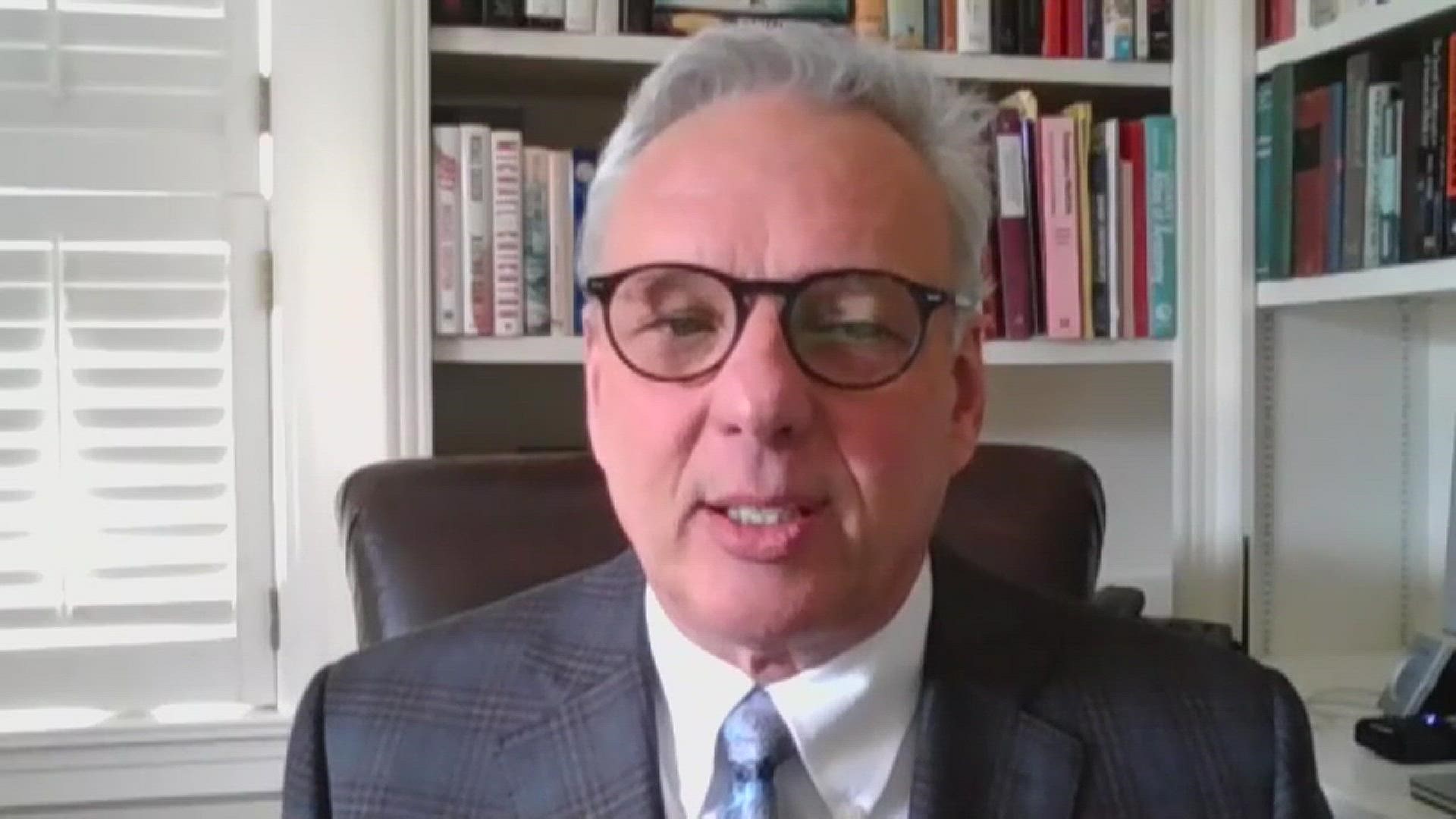LOS ANGELES — Californians endured a weekend of stepped-up restrictions aimed at keeping them home as much as possible while health officials scrambled to ready themselves for a week that could see a dramatic surge in coronavirus cases.
The mayor of Los Angeles is warning that the coronavirus may become so pervasive, families ought to prepare for how they will isolate themselves at home without infecting others in their households. Anticipating a surge in COVID-19 cases this week that may overwhelm healthcare systems, Mayor Eric Garcetti urged people who test positive for the coronavirus not to rush to hospitals unless they have serious symptoms.
Instead, he asked residents to be "take isolation seriously."
National Guard troops have started transofrming the downtown Los Angeles Convention Center into a field hospital. Testing among the state's 40 million residents is up significantly after a slow start. Officials have warned the increase will bring with it a rapidly expanding number of cases.
For the full story, click HERE.
CORONAVIRUS INFORMATION:
- Coronavirus Resources: A guide to help you and your family
- Here's how to get a coronavirus test in Sacramento and surrounding counties
- Food stamp applications on the rise | 4 things to know about CalFresh
- How to help local families impacted by the coronavirus crisis
- How to practice social distancing while running errands
Coronavirus background
According to the CDC, coronavirus (COVID-19) is a family of viruses that is spreadable from person to person. Coronavirus is believed to have been first detected in a seafood market in Wuhan, China in December 2019. If someone is sick with coronavirus, the symptoms they may show include mild to severe respiratory illness, cough, and difficulty breathing.
Currently, there is no vaccine, however, the CDC suggests the following precautions, along with any other respiratory illness:
- Avoid close contact with people who are sick.
- Avoid touching your eyes, nose, and mouth.
- Stay home when you are sick.
- Cover your cough or sneeze with a tissue, then throw the tissue in the trash.
- Clean and disinfect frequently touched objects and surfaces using a regular household cleaning spray or wipe.
- Wash your hands with soap and water for a minimum of 20 seconds.
The CDC also says facemasks should only be used by people who show symptoms of the virus. If you’re not sick, you do not have to wear a facemask. The CDC says the immediate risk to the U.S. public is low.
RELATED:
FOR THE LATEST CORONAVIRUS NEWS,
DOWNLOAD THE ABC10 APP:
►Stay In the Know! Sign up now for ABC10's Daily Blend Newsletter
WATCH ALSO:



